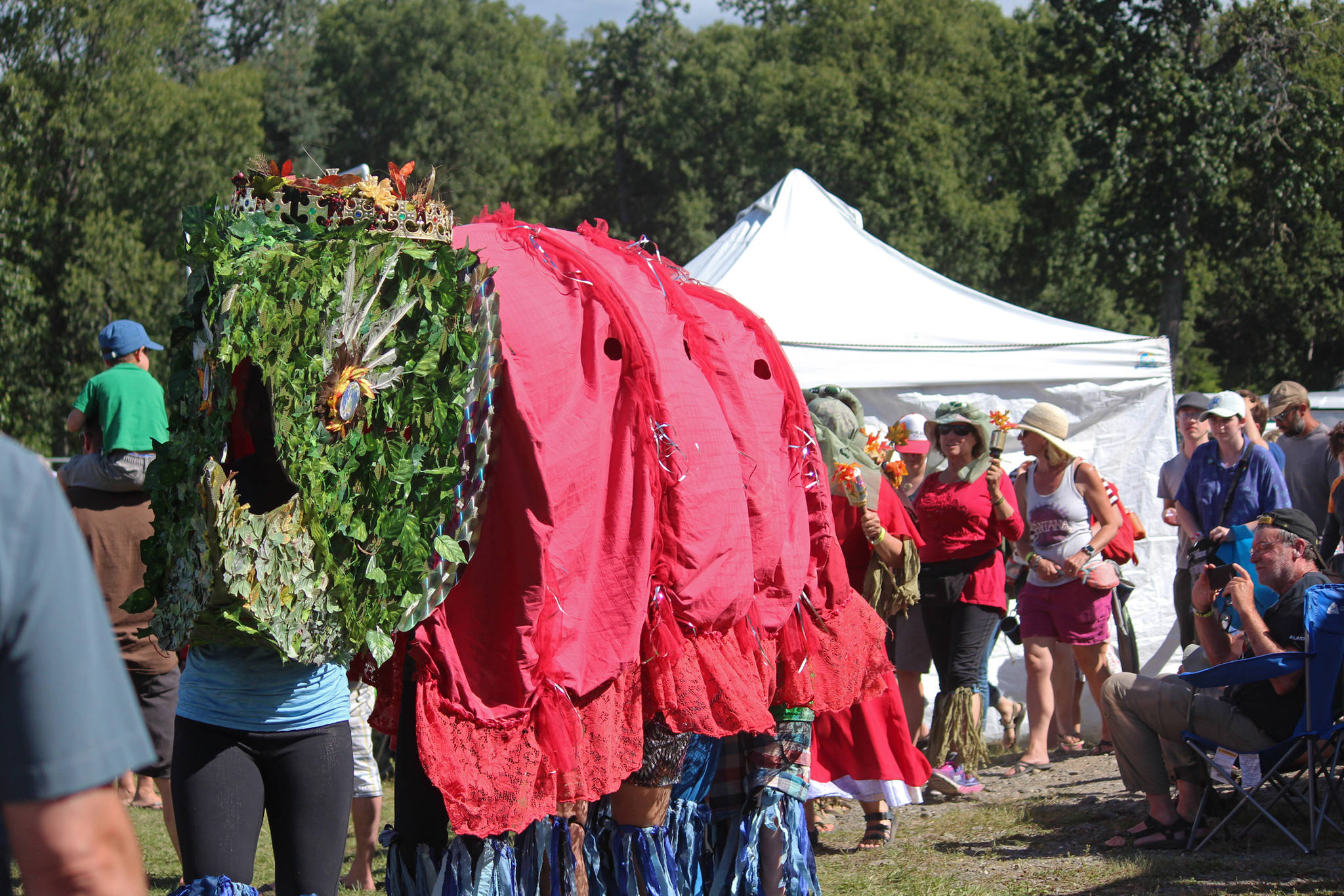For the first time in its relatively short history, Salmonfest will not proceed with three days of fish, love and music.
Organizers announced the cancellation of the 2020 festival, scheduled for the first weekend in August, on the Salmonfest Facebook page on Sunday. Next year’s festival, which Salmonfest Director Jim Stearns said he’s confident will go ahead as planned, will mark the event’s 10th anniversary.
The annual music festival and environmental advocacy event is the latest Alaska casualty of the global coronavirus pandemic. Even with restrictions lifted on businesses and some other sectors of the economy, large events still represent a big question mark. Asked last week whether large gatherings will be allowed going forward, Gov. Mike Dunleavy said his administration is still discussing that.
“We’re going to have to figure out a way to make that work,” Dunleavy said on May 19. “… We’re having those discussions. We’re working with the folks who are putting those large gatherings on.”
Salmonfest’s cancellation follows the same announcement recently by the Alaska State Fair in Palmer. Stearns said Salmonfest organizers came to the decision after getting feedback from locals who said they would not be comfortable attending this year.
“There was just too much anxiety around the whole thing,” he said.
The logistics of holding the annual festival, which floods the small fishing community of Ninilchik with music lovers from all over the state, would have been challenging, Stearns said. The festival organizers had been considering an attendance limit for the Kenai Peninsula Fairgrounds in Ninilchik where the festival is held, as well as other controls, but Stearns said it would have been complicated, and still risky.
“I think that putting on a large festival is probably one of the most challenging things you could do in that context,” he said.
Trying to hold the festival at the same level as years past would have been politically risky and risky in terms of health safety, Stearns said.
“I have a mixed feeling about it,” he said of canceling the festival. “We’ve got to balance opening up our state with being careful.”
Anyone who already bought tickets to Salmonfest will be given a refund, or offered the option of carrying over their ticket to the 2021 event, Stearns said. Organizers are also sending out a survey to their email list asking for feedback on whether people would feel comfortable attending a smaller event, and when they might feel comfortable doing so.
Potential plans for a very scaled down event later this fall are still in the preliminary stages. It would be nothing like Salmonfest and would not be advertised under that name, Stearns said.
Those behind the festival “have no intention of going anywhere, of course,” Stearns said. Work will continue through this summer on an additional 40 acres of campground space, he said, as much as resources allow.
While Stearns has not gotten confirmation from every band slated to perform at this year’s festival, he said it looks like most of the musical talent will return for the same lineup in 2021. The festival will work to find replacements for any bands that do not return, Stearns said.
Stearns said the organizers behind Salmonfest had been prepared to meet some kind of disaster at some point, but they had figured on it being an earthquake, a volcano eruption, a fire or some other typical Alaska emergency.
“Nobody could have ever anticipated this,” he said of the coronavirus pandemic.
Still, Stearns said he thinks the festival is in a good position to help rebuild part of the music industry when large gatherings are safe again.
“We really appreciate everybody’s support and understanding about this whole thing,” he said.
For more information, visit salmonfest.org or the festival’s Facebook page.

